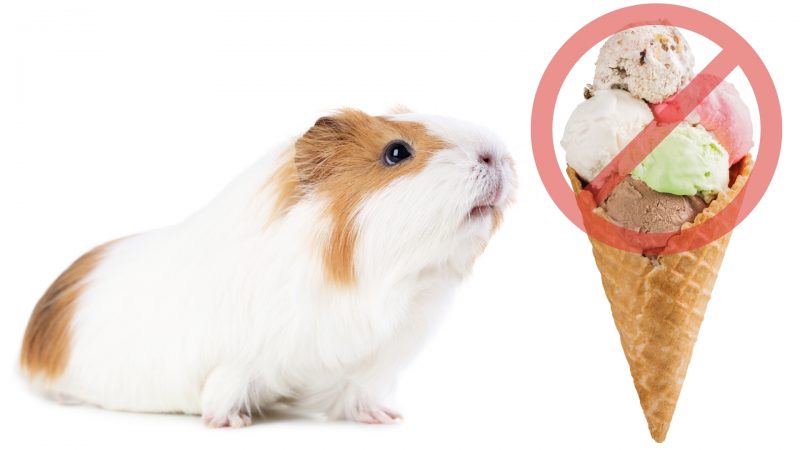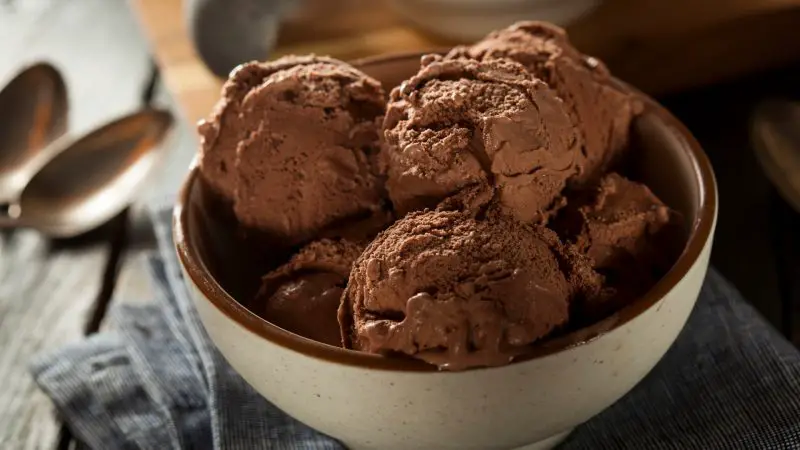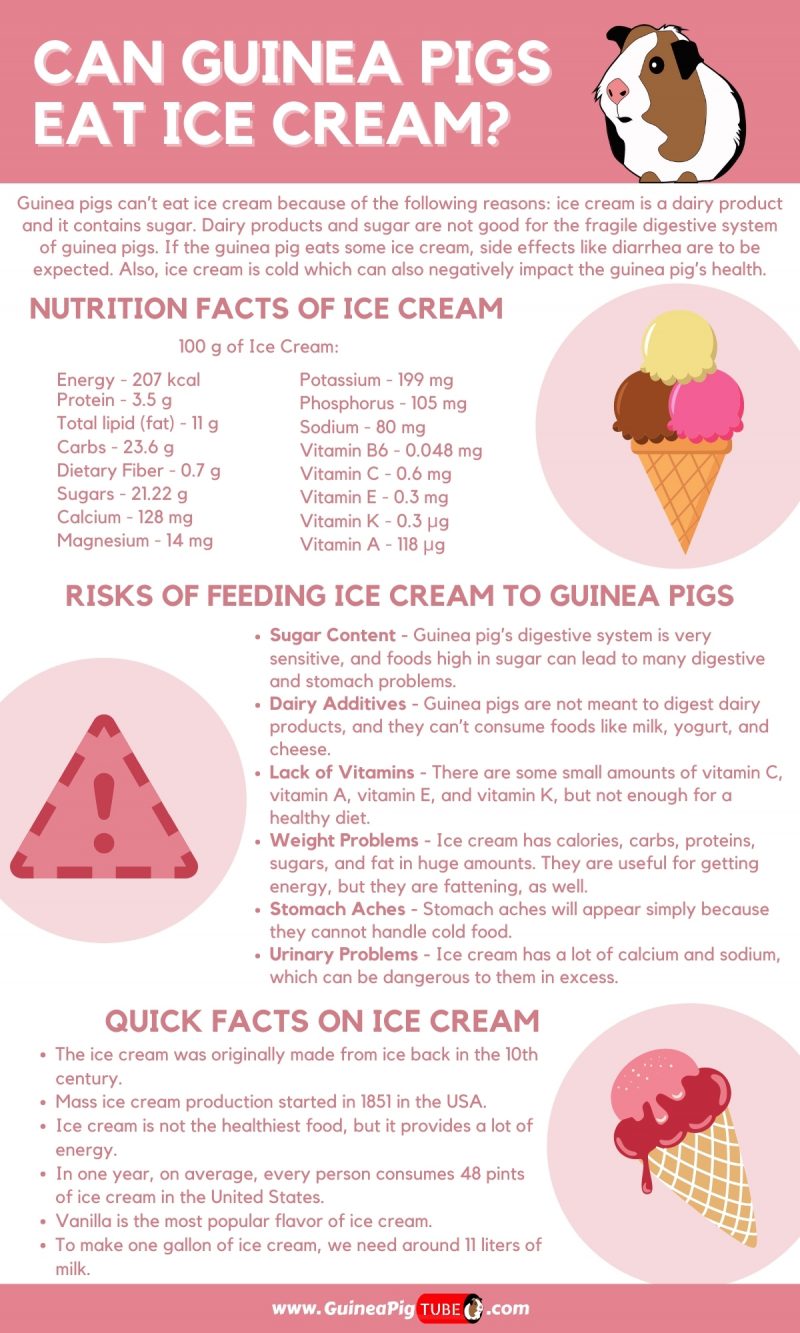Everybody enjoys ice cream. It would be difficult to find anyone who would refuse ice cream, especially in the summer. Even some pets enjoy such delectable treats, but unfortunately, they are not always good for them, especially guinea pigs.
Ice cream is a dairy product with added sugar. Ice cream is a dairy product with added sugar. Side effects such as diarrhea are to be expected if the guinea pig consumes ice cream.
Table of Content
Nutrition Facts of Ice Cream

In 100 g (3 oz) of ice cream, there is:
- Energy – 207 kcal
- Protein – 3.5 g
- Total lipid (fat) – 11 g
- Carbs – 23.6 g
- Dietary fiber – 0.7 g
- Sugars – 21.22 g
- Calcium – 128 mg
- Iron – 0.09 mg
- Magnesium – 14 mg
- Phosphorus – 105 mg
- Potassium – 199 mg
- Sodium – 80 mg
- Zinc – 0.69 mg
- Copper – 0.023 mg
- Selenium – 1.8 µg
- Vitamin C – 0.6 mg
- Vitamin B-6 – 0.048 mg
- Vitamin B-12 – 0.39 µg
- Vitamin A – 118 µg
- Vitamin E – 0.3 mg
- Vitamin K – 0.3 µg
- Thiamin – 0.041 mg
- Riboflavin – 0.24 mg
- Niacin – 0.116 mg
- Cholesterol – 44 mg
Risks to Consider When Feeding Ice Cream to Guinea Pigs

One risk of consuming ice cream is its high sugar content. Guinea pigs’ digestive system is very sensitive, and foods high in sugar can lead to many digestive and stomach problems.
Dairy additives in ice cream are just too much for them to handle. Guinea pigs are not meant to digest dairy products, and they can’t consume foods like milk, yogurt, and cheese.
Ice cream has small amounts of vitamin A, vitamin E, and vitamin K, but not enough for a healthy diet, especially vitamin C. This vitamin is a crucial part of the guinea pig’s diet. Without vitamin C, the guinea pig can get a disease called scurvy which manifests itself with the following symptoms such as a rough coat, swollen joints, weight loss, diarrhea, and more.
Ice cream has calories, carbs, proteins, sugars, and fat in huge amounts. They are useful for getting energy, but they are fattening, as well. They may develop problems with weight gain, which can lead to many health problems and even diabetes.
Ice cream is too cold for guinea pigs’ stomachs because they can’t eat frozen food. Stomach aches will appear simply because they cannot handle cold food. Also, ice cream can be bad for guinea pigs’ teeth.
Ice cream has a lot of calcium and sodium, which can be dangerous to them in excess. If you give your guinea pigs foods rich in calcium and sodium, they may get some urinary problems. Calcium can develop bladder and kidney stones.
Can Guinea Pigs Eat Chocolate Ice Cream?

Guinea pigs can’t eat chocolate ice cream or any other type of ice cream. Eating ice cream can lead to many health problems. Guinea pigs can’t eat chocolate as well, so chocolate ice cream is totally forbidden to them. It’s full of calories, fat, sugar, calcium, and dairy additives that are very harmful to guinea pigs’ stomachs and digestive systems. Chocolate ice cream is an extremely unhealthy and unnecessary type of food in their daily diet.
Quick Facts on Ice Cream
- Ice cream was originally made from ice back in the 10th century.
- Mass ice cream production started in 1851 in the USA.
- Ice cream is not the healthiest food, but it provides a lot of energy.
- In one year, on average, every person consumes 48 pints of ice cream in the United States.
- Vanilla is the most popular flavor of ice cream.
- To make one gallon of ice cream, we need around 11 liters of milk.

We have also made a full list of foods that guinea pigs can and can’t eat (150+ Types of Foods). Be sure to also check our recommended products page for everything you will ever need to assure a happy life for your guinea pigs. Hope this information was helpful and you have found the answer you were looking for.
List of Sources
Nutrient Requirements of Laboratory Animals: Fourth Revised Edition
The Effects of Diet on Anatomy, Physiology and Health in the Guinea Pig
